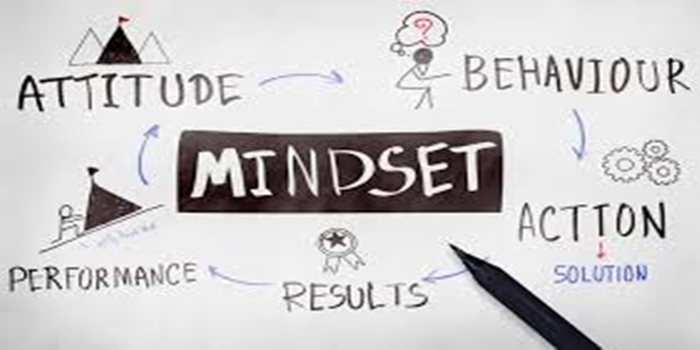In this article, we explained the meaning of mindset and beliefs, the examples, the benefits and we also stated the types.
Definition
Mindset refers to an individual’s way of thinking and their opinions, while beliefs are the ideas they firmly believe to be true. Mindsets act as a lens through which we interpret the world and influence our behaviors. Beliefs, on the other hand, are the core foundations of our thinking and can significantly impact our mindset.
The Examples of Mindset and Beliefs:
Growth Mindset:
Belief: Abilities and intelligence can be developed through effort and practice.
Examples:
“I can learn anything if I put in the work”.
“Challenges are opportunities to grow”.
“Failure is a stepping stone to success”.
“I can improve my skills with practice”.
“I embrace feedback and use it to learn”.
Fixed Mindset:
Belief: Abilities and intelligence are innate and fixed.
Examples:
“I’m either good at something or I’m not”.
“If I don’t get it right away, I’m not good at it”.
“I don’t like it when people give me feedback”.
“I’m too shy to speak in front of the class”.
“I’m already a really good writer”.
“If I don’t try new things, then I won’t fail”.
Limiting Beliefs: Negative self-talk or beliefs that hinder progress.
Enabling Beliefs: Positive self-talk or beliefs that promote growth and achievement.
Fear of failure: A fixed mindset can lead to a fear of failure, as individuals may believe that failure is a reflection of their inherent limitations.
Embracing challenges: A growth mindset encourages individuals to embrace challenges and view them as opportunities for learning and growth.
Persistence: A growth mindset fosters persistence, as individuals are more likely to keep trying even when faced with setbacks.
The Benefits of Mindset and Beliefs:
Positive Mindset:
Stress Reduction: A positive mindset helps in managing stress and reduces its negative impact.
Mental Health: It can lower the risk of depression and improve overall mental well-being.
Physical Health: Research suggests a positive outlook can contribute to better cardiovascular health and increased resistance to illnesses.
Problem-Solving: Individuals with a positive mindset are better equipped to tackle challenges and find solutions.
Leadership: A positive mindset can enhance leadership skills and inspire others.
Increased Self-Esteem: A positive mindset can foster a healthy self-image and boost confidence.
Beliefs (especially a Growth Mindset):
Motivation and Effort:
A growth mindset, the belief that abilities can be developed through effort and learning, fuels motivation to overcome challenges.
Resilience:
Growth mindset individuals are more likely to bounce back from setbacks and view failures as opportunities for growth.
Learning and Adaptation:
They embrace new challenges and are open to learning and adapting, constantly seeking to improve their skills.
Success and Achievement:
Studies show that people with a growth mindset are more likely to achieve success in various areas of life.
Creativity and Innovation:
A growth mindset encourages thinking outside the box and embracing new ideas.
Stronger Relationships:
A positive outlook and strong beliefs can lead to stronger and more fulfilling relationships.
The Types of Mindset and Beliefs:
Types of Mindsets:
Fixed vs. Growth:
A fixed mindset believes abilities are static and cannot be developed, while a growth mindset embraces challenges and sees them as opportunities for learning and improvement.
Positive vs. Negative:
A positive mindset focuses on the good and sees opportunities, while a negative mindset emphasizes challenges and setbacks.
Abundance vs. Scarcity:
An abundance mindset believes there’s enough for everyone and focuses on sharing and cooperation, while a scarcity mindset views resources as limited and promotes competition.
Entrepreneurial:
This mindset is characterized by a proactive, risk-taking approach, always seeking new opportunities and solutions.
Mindful:
A mindful mindset involves being present in the moment, observing thoughts and feelings without judgment, and accepting reality as it is.
Beliefs and their Influence:
Core Beliefs:
These are deeply held convictions that shape a person’s fundamental view of themselves, others, and the world.
Limiting Beliefs:
These are negative beliefs that hinder progress and limit potential.
Empowering Beliefs:
These are positive beliefs that motivate action and support personal growth.
Self-Efficacy:
Beliefs in one’s ability to succeed in specific situations or achieve particular goals.
How Mindset and Beliefs Interconnect:
Mindset shapes beliefs:
For example, a growth mindset can lead to the belief that learning and development are lifelong processes.
Beliefs influence mindset:
A belief in one’s ability to succeed can foster a more positive and proactive mindset.
Both impact behavior:
A mindset and the associated beliefs determine how individuals respond to challenges, interact with others, and pursue their goals.
Conclusion
Mindset and beliefs are interconnected, shaping how individuals perceive and respond to the world. There are several types of mindsets, including fixed vs. growth, positive vs. negative, and abundance vs. scarcity, each influencing behavior and outcomes. Beliefs, often rooted in personal experiences and cultural context, can be conscious or unconscious, impacting mindset and influencing choices and actions.
READ: Money Mindset and Personal Growth


